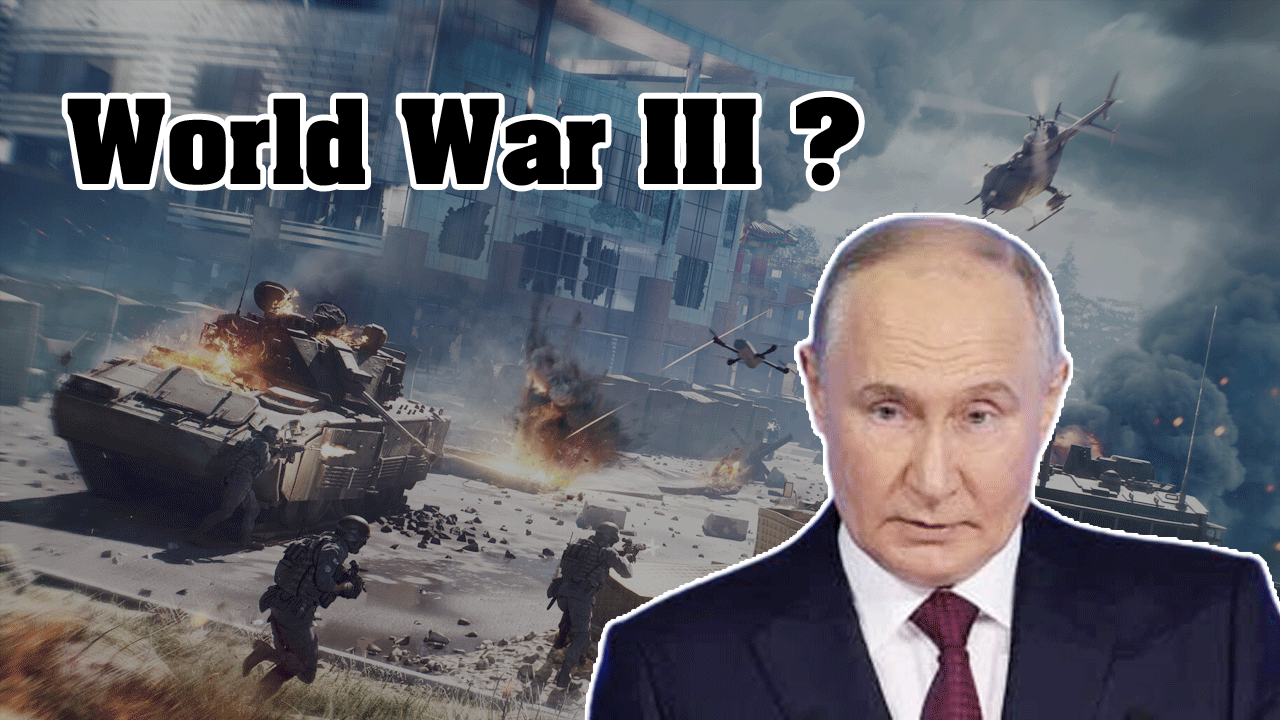Putin Signs Revised Nuclear Policy, Heightening Concerns of World War III
Russian Foreign Minister Sergey Lavrov issued a stern warning to Western nations, emphasizing that Russia would respond decisively, including with nuclear weapons, to any conventional or nuclear threat. This stance appears to be aimed at deterring NATO's increasing support for Ukraine.

Moscow: Russian President Vladimir Putin has signed a revised nuclear policy, sparking fears of an impending global conflict. The updated doctrine allows Russia to use nuclear weapons in response to conventional attacks on its territory or that of its ally, Belarus.
Table of Contents
Also Read: Donald Trump’s Security Upgraded with High-Tech Robotic Dog Patrol
Policy Highlights and Strategic Implications
According to international media reports, the newly approved nuclear deterrence policy marks a significant shift in Russia’s stance on nuclear weapon use. The policy specifies that:
- Russia reserves the right to deploy nuclear weapons if conventional weapons are used against it or its allies.
- An attack involving a nuclear ally of any adversary will be considered an attack on Russia itself, prompting a nuclear response.
- Any significant airstrike against Russia could trigger a nuclear reaction.
This shift comes in response to the United States authorizing Ukraine to use long-range American missiles to strike Russian targets. President Putin’s move signals an escalation in the geopolitical tensions surrounding the Ukraine conflict, further straining East-West relations.
Ukraine’s Escalation and Russian Retaliation
Following U.S. President Joe Biden’s approval, Ukraine recently launched a significant strike inside Russian territory, reportedly using long-range American missiles. Ukraine claims to have targeted an ammunition depot located 110 kilometers inside Russia in the Kherson region, leading to multiple explosions. Russia, however, stated that six missiles were intercepted and destroyed before reaching their target.
The development has added a new dimension to the ongoing war, with Ukraine showcasing its ability to target deeper into Russian-held territories.
Russia’s Warning to the West
Russian Foreign Minister Sergey Lavrov issued a stern warning to Western nations, emphasizing that Russia would respond decisively, including with nuclear weapons, to any conventional or nuclear threat. This stance appears to be aimed at deterring NATO’s increasing support for Ukraine.
Lavrov reiterated Russia’s commitment to its national security, stating, “Any threat to Russia or its allies will meet with a response that guarantees the safety and sovereignty of our nation.”
Growing Fears of a Broader Conflict
The revised nuclear doctrine raises alarms about the possibility of a broader conflict involving nuclear powers. Analysts have expressed concern over the potential miscalculation or misinterpretation of military actions leading to unintended escalation.
This development underscores the rising tensions between global powers, with the Ukraine war serving as a flashpoint. It remains to be seen how the U.S., NATO, and other Western powers respond to Russia’s new nuclear policy amid the increasingly volatile international security environment.
Historical Context
The move comes at a time of heightened hostilities between Russia and Western nations. The use of long-range weapons, nuclear posturing, and proxy warfare have drawn comparisons to the Cold War era, albeit with the stakes significantly higher due to the ongoing active conflict in Ukraine.
As the situation unfolds, global leaders are being urged to prioritize diplomatic efforts to prevent a catastrophic confrontation that could reshape the global order.
